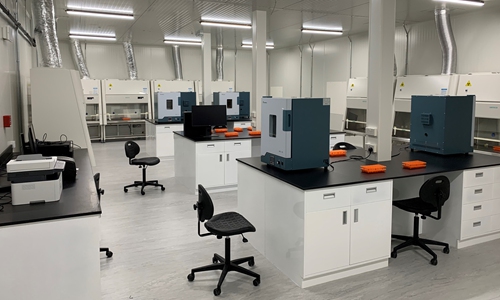by Ganesh Sahathevan
The Hunt&Forrest show needs further explanation
In February this year Global Times, The Communist Party China's English language daily, had this to say about the efficacy of BGI's test kits:
China's genome sequencing company BGI Group told the Global Times that they could produce 50,000 test kits per day. Test results can be determined in three hours.
However, some medical workers doubted the reliability of the tests following reports that a patient in North China's Tianjin was diagnosed after four attempts: the first two results came back negative while the last two were positive.
We can't solely rely on nucleic acid tests due to existing errors, a doctor from the Wuhan Union Hospital who preferred not to be named, told the Global Times. "CT chest scans are more accurate," she said.
BGI has been promising testing kits to many other countries (see BGI press release below), and even if Australia has been given priority over all other countries it is hard to see how BGI could have produced 10 Million test kits by this time. Producing that many kits at current capacity would require 200 days, which means BGI would have had to start production of these kits sometime in November last year.China insists it knew nothing about the Wuhan Virus until sometime in late December 2019.
END
BGI Group helping over 80 countries
for timely COVID-19 detection and
intervention
-More than 10 million RT-PCR SARS-CoV-2 tests manufactured
-Test kits being distributed to over 80 countries
-Production capacity trebled to more than 2 million tests per day; set to rise further to meet demand
SAN JOSE, Calif., April 20, 2020 /PRNewswire/ -- Global genomics leader BGI Group has announced it has produced more than 10 million of its Real-Time SARS-CoV-2 tests, which are approved under US FDA-EUA, and is distributing them to more than 80 countries around the world. BGI Group is also helping partners to set up emergency testing laboratories in the US, Europe, Middle East and Asia, bringing population-scale detection and diagnosis of COVID-19 to the world.
Doctors with MGI equipment at AP-HP hospital group in Paris
BGI Group is meeting the demand for testing kits by trebling production and working with governments to launch emergency laboratory solutions.
MGI, part of the BGI Group, confirmed an agreement with the French Health Ministry to provide equipment and materials to 19 hospitals throughout France to enable COVID-19 testing of 2 million people, while BGI Genomics confirmed it will provide 1 million RT-PCR tests for diagnosis of COVID-19.
BGI Genomics is one of the few companies globally that has products recognized as officially approved for use in China, the European Union, the United States, Japan and Australia. BGI's RT-PCR Test for SARS-CoV-2 has been granted approval for emergency use by the US FDA, Europe's CE-IVD, China's NMPA, Japan's PMDA and Australia's TGA.
"The most critical thing for all of us at BGI is to help bring this pandemic under control. We are working with governments and institutions globally to achieve this mission," says Yin Ye, CEO of BGI Genomics.
BGI Group started out at the forefront of the fight against COVID-19 in China and is now spearheading a worldwide response, deploying not only test kits but also laboratory robots to automate sample preparation and powerful sequencers to track virus mutations.
In Wuhan, BGI Group set up its first Huo-Yan or "Fire Eye" Laboratory in five days. This 2,000 square-meter automated Biosafety Level-2 PCR testing laboratory can perform 10,000 tests a day.
A comprehensive solution for rapidly scaling up diagnostic testing, the Fire Eye model is now being implemented around the world. The laboratories combine the best of BGI Group expertise. The laboratory equipment is produced by MGI, a part of the BGI Group focused on sequencing tools and lab automation.
Sequencing plays a number of roles in the fight against COVID-19, explains Duncan Yu, President of MGI. "It helped identify the virus that caused COVID-19 and can track new strains of the virus as it mutates and the speed of those changes."
In the UAE, together with local partner G42, BGI Group built the first laboratory outside China in Abu Dhabi in just 14 days. It began operating in early April and will scale up to handle tens of thousands of samples a day.
In Sweden, BGI Group has been working with the Karolinska Institute to build a Fire Eye lab in Stockholm. It will perform both virus detection and scientific research for comprehensive monitoring of virus mutations.
In Kansas City, BGI Group formed an innovative partnership with local business leaders and The University of Kansas Health System. The business leaders provided funding to help protect their local community and provide 50,000 test kits, along with lab automation equipment.
The BGI Group has a long history of responding to public health crises, including decoding the genome of the SARS virus in 2003, then developing the virus detection kit in 96 hours, and helping fight the Ebola outbreak in 2014 in West Africa.
SOURCE BGI Group




